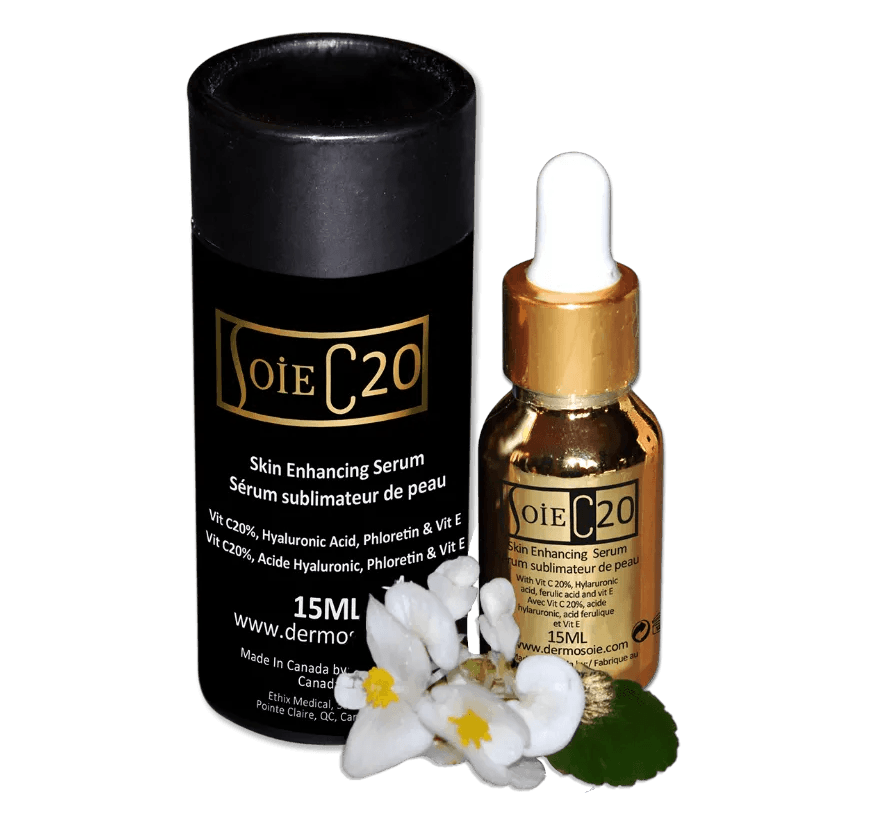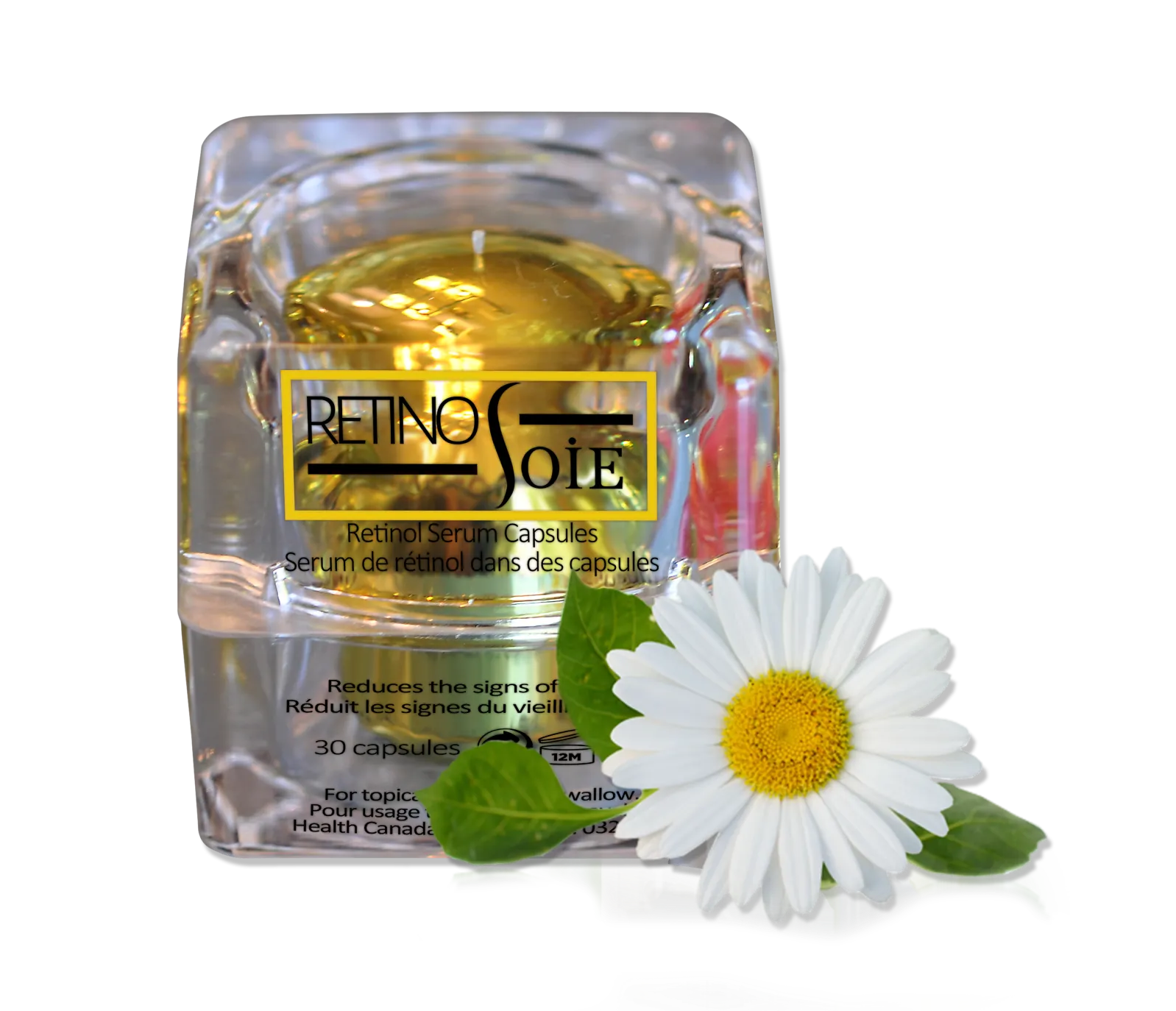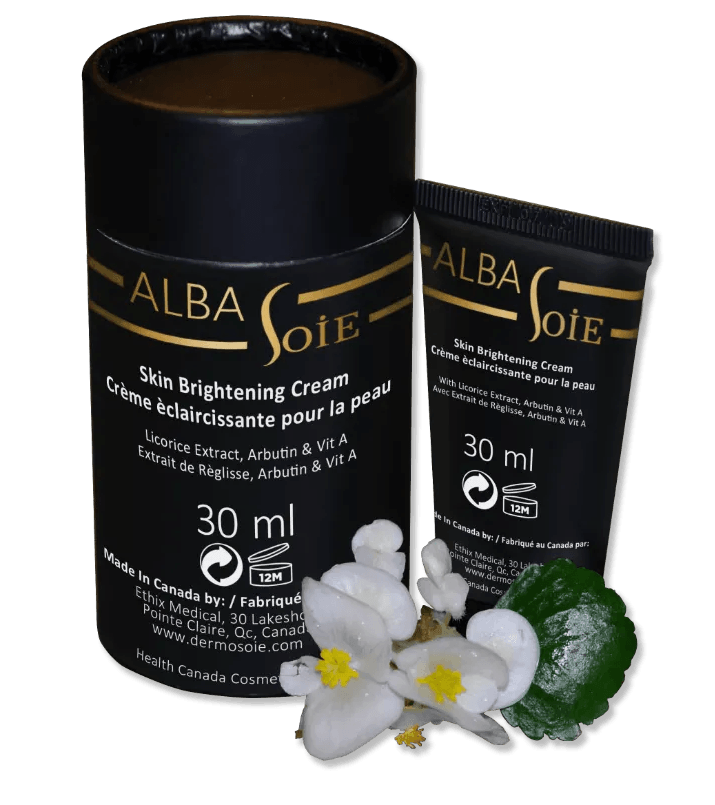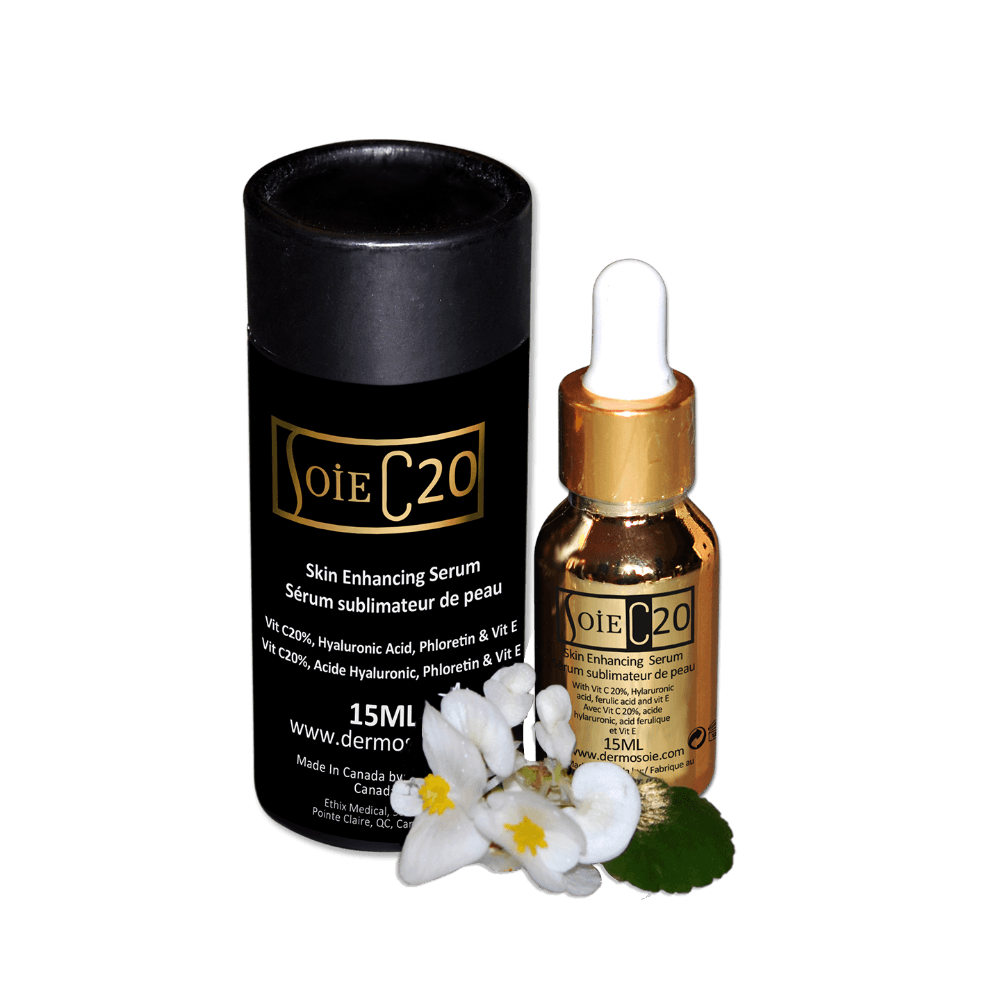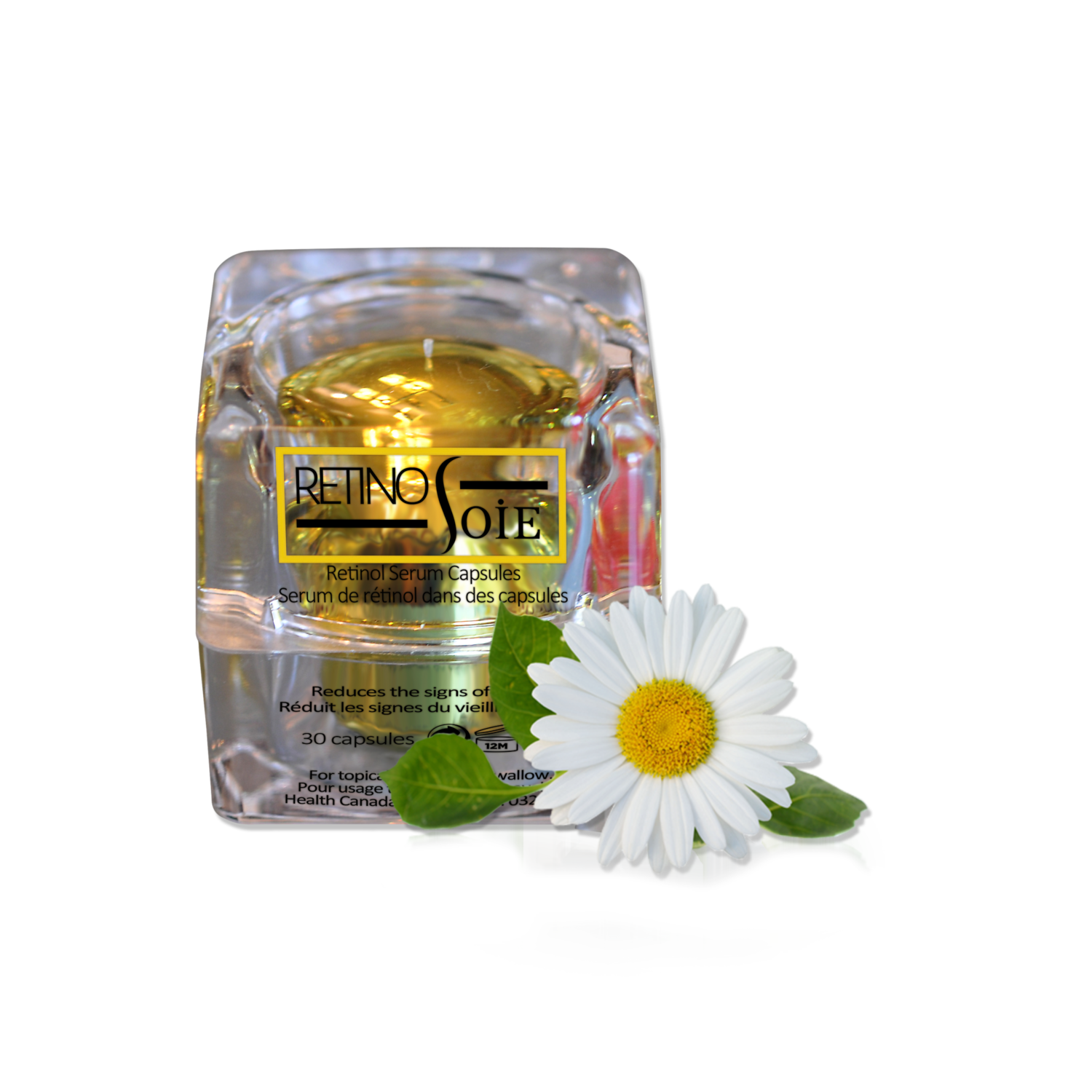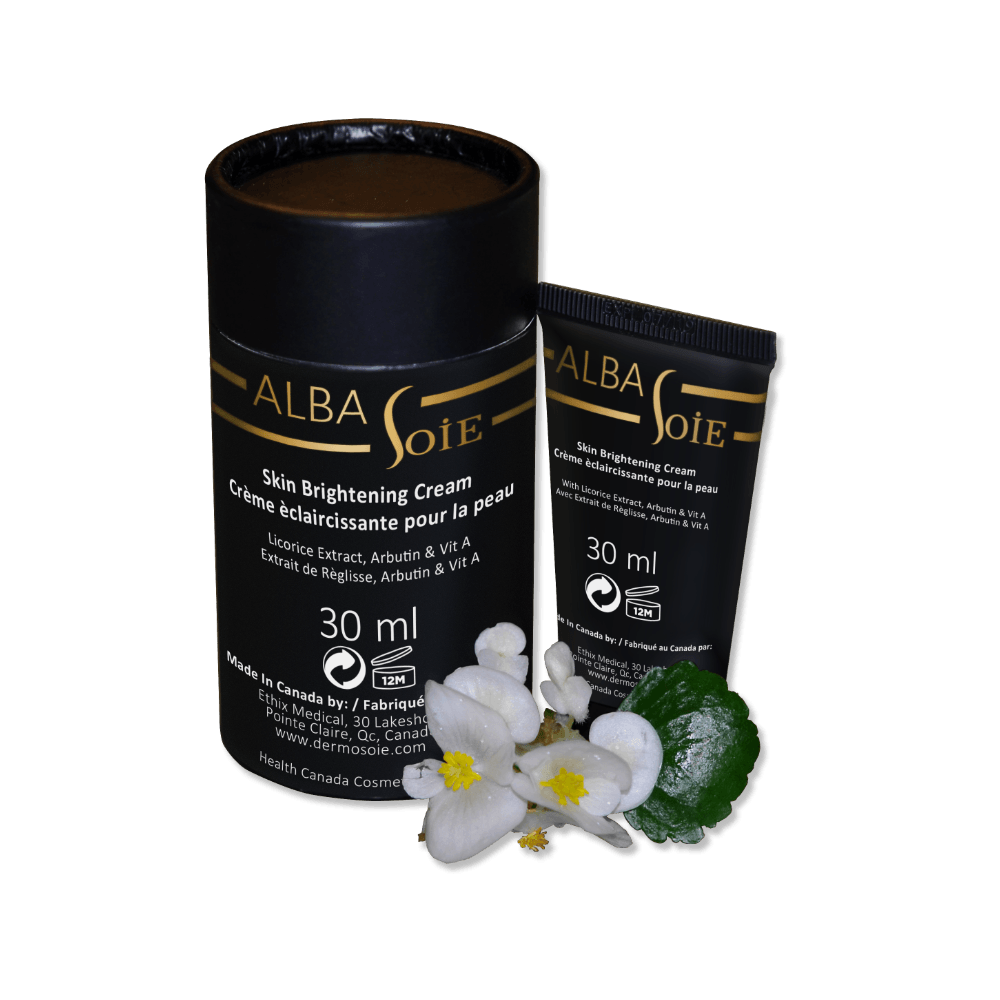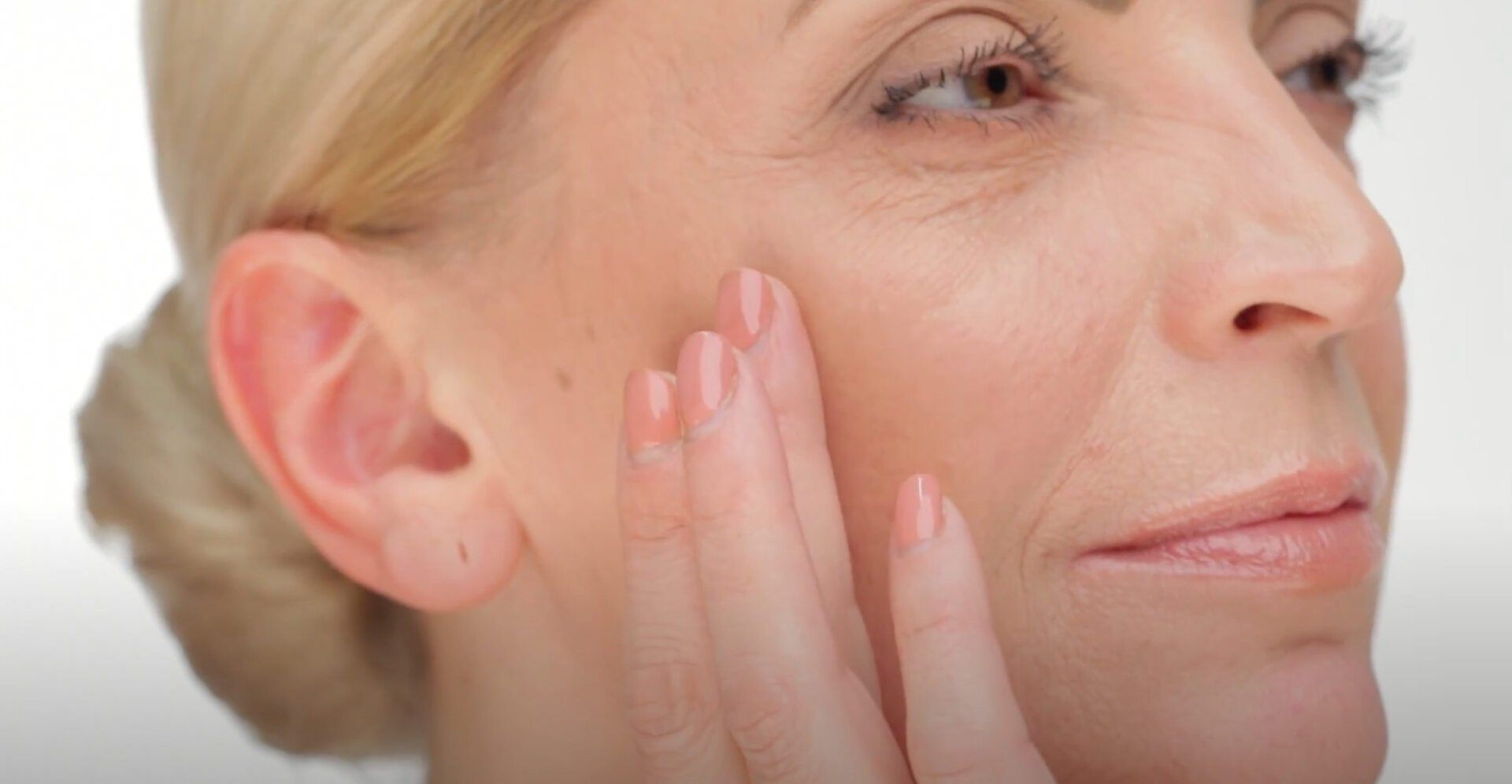
OUR STORY
DermoSoie (pronounced DermoSwa) is a developer, manufacturer and a marketer of Functional Skin Care products Based on Advanced Science
The approach of DermoSoie is to develop scientifically sound products formulated in such a way that its ingredients reach the target cells to exert the desired effect. This explains why our products are so noticeably effective compared to other products in the market.
News & Articles

By Hanae Armitage
•
October 25, 2020
With each year that brings me closer to a certain milestone birthday -- hint, rhymes with "dirty" -- I find myself increasingly investigating the skin care industry's latest potions of youth. Among the myriad serums that promise plumping, moisturizing, collagen-boosting and dewy flawless skin, one standby always seems to reign: retinol. A derivative of vitamin A, retinol has been around for decades and has been a go-to skin care solution for dermatologists -- some might even say the gold standard. It's used for all sorts of skin remedies, including fighting acne, reducing wrinkles, reversing sun damage, shrinking pores -- all the good stuff. While I'm all for a magic youth facial serum, I'm also skeptical about the hype -- and I've heard some not-so-flattering things about retinol, including that it can make your skin itchy and dry, or even make it more susceptible to sun damage and skin cancer. So I asked Stanford dermatologist Zakia Rahman , MD, to weigh in. What is retinol? Is it the same thing as a retinoid or vitamin A? Retinol and retinoids aren't exactly the same thing, but they are both chemical derivatives of vitamin A, a central vitamin needed for many functions of the body. Both have utility in skin care, particularly for reducing wrinkles, improving collagen production and treating acne, among other functions. Retinols and retinoids are born of the same vitamin; but retinoids are more potent and are classified as a pharmaceutical, meaning you need a prescription to use a retinoid cream. Although recently, an over the counter retinoid (adapalene 0.1% gel) has become available without a prescription. Retinols have a naturally weaker affect and are found in over-the-counter creams broadly known as cosmeceuticals. Retinols can still be effective, but the results won't be as stark and will take longer to appear. That said, they're very accessible, and you don't need a prescription. Often, retinols are a good place to start for people who are just looking to try it out. Personally, I'm a huge fan of retinoids and likely the majority of dermatologists who you speak to are on some type of topical retinoid regimen. How do retinols/retinoids work? Retinoids and retinols change how a cell functions, specifically the speed at which a cell turns over, or divides, to create new cells. Retinoids encourage skin cells to divide more rapidly, building up the protective top layer of skin, the epidermis. As we age, there is a decline in the natural production of collagen and elastic fibers that give your skin lift and bounce in the epidermis. That makes our skin more frail and thin, which leads to wrinkles, sun spots and other types of visible skin damage. Retinoids help mitigate those issues in a variety of ways. They thicken the epidermis through increased cell proliferation at the top level. They increase the production of natural chemicals (such as hyaluronic acid) in your skin that keep it plump and moist. They stimulate collagen production and inhibit the breakdown of collagen that already exists. They also block several inflammatory pathways that exacerbate pimples and acne. Retinoids have so many benefits. Are there downsides? There are definitely side effects with both retinols and retinoids, but I want to emphasize that they're temporary, lasting around three to four weeks. The most common side effects I see with patients are redness, dry and scaly skin and itching or burning. In more extreme cases, people who already have naturally dry skin can sometimes get nosebleeds and cracking at the sides of the mouth. Retinoids also initially increase the skin's sensitivity to ultraviolet light. But after a few months of regular use, that sensitivity dissipates. So all you have to do is make sure you're wearing sunscreen every day, which we should all be doing anyway. These changes can be fairly mild, or they verge on intolerable. But there are tricks that can mitigate irritation. For instance, when first starting a retinol or retinoid, I tell patients to start with a low dose once a week, and then slowly work up to twice a week and so on. Another regimen I like is to start using the retinoid/retinol daily, but apply it with a moisturizer (such as one based in hyaluronic acid or dimethicone). In a few weeks, the peeling effects will go away, but all the beneficial effects will remain. I have a regimen of things that I use and recommend to patients incorporating retinoids into their skin care routine, including hyaluronic acid and rich moisturizers, sometimes even vaseline. The good news is, eventually your skin adjusts and you can increase the strength of the treatment and the frequency. After that, it's smooth sailing.

By Moira Lawler
•
October 25, 2020
You reach for vitamin C when you feel a cold coming on, but did you know it also plays a role in delivering a smooth, glowing complexion? It’s become a holy-grail item for the skin-obsessed in recent years. “Vitamin C is a hot topic, and it’s buzzworthy because it has so many preventative and also maintenance benefits,” says Nazanin Saedi , MD, a dermatologist with Jefferson University in Philadelphia. Here, dive into everything you need to know about vitamin C serums, including why to use one, how to apply it, and what to watch out for. What is a Vitamin C Serum Exactly, and What’s in It? A vitamin C serum is a skin-care product packed with vitamin C. It has the consistency of a liquid or gel, and is applied topically to the skin. You’ll find these serums wherever you normally purchase skin-care products — at department stores, beauty stores, and some drug stores, too. On the packaging, you’ll likely see words touting skin benefits like “firming,” “brightening,” and “ collagen boosting.” Tapping into those benefits is the main reason to add a vitamin C serum to your skin-care routine. “The benefit of vitamin C is it’s an antioxidant , so it helps prevent the forming of free radicals, which go on to break down collagen and elastin,” Saedi says. The result, she says, is glowing, youthful skin. Research Behind Vitamin C and Vitamin C Serums Of course, you can source vitamin C through foods, namely fruits and vegetables like cantaloupe, oranges, pineapple , broccoli , and Brussels sprouts, according to MedlinePlus . It’s an important nutrient to load up on because it’s essential for growth and development. It plays a role in forming and repairing body tissue, and delivering antioxidants to cut down on the presence of dangerous free radicals. Vitamin C is also naturally present in the skin, where it helps promote collagen and antioxidant levels, and protects the skin against UV-ray-induced photodamage, according to a study published in August 2017 in the journal Nutrients . Sounds great, right? You may be thinking about how to increase vitamin C in your diet to tap into these benefits. Unfortunately, simply eating more oranges and cantaloupe isn’t going to cut it. That’s because the epidermis, the outermost layer of the skin, doesn’t have blood vessels to send nutrients to the skin cells, according to the Nutrients study. Vitamin C can, however, be applied topically — and that’s where vitamin C serums come in. “Vitamin C is best known for its ability to neutralize free radicals and improve aging skin,” says Joel Schlessinger, MD , an Omaha, Nebraska-based dermatologic surgeon and RealSelf contributor. “It can also improve collagen and elastin synthesis — which can improve the appearance of fine lines and wrinkles; help reduce inflammation , provide natural, mild exfoliation; and brighten skin.” Research has also shown the effectiveness of topical application. A study published in September 2015 in Clinical, Cosmetic and Investigational Dermatology found applying vitamin C topically increased collagen production among study participants in all age groups. The study participants noticed the effects after 40 days of treatment and were even more pronounced at the 60-day mark. It can also help with melasma and post-inflammatory hyperpigmentation . According to a January 2013 study published in Journal of Drugs and Dermatology , study participants saw an average 73 percent improvement in skin pigmentation as a result of applying vitamin C to the face. Who Should Use a Vitamin C Serum on Their Skin? According to the study in Nutrients, vitamin C can help protect the skin from many problems, including sunburn, photoaging, hyperpigmentation, wrinkles, sagging, dryness, and an uneven skin tone. Anyone dealing with these skin issues may want to consider adding a vitamin C serum to their skincare regimen. But it’s a good idea to get started even if these issues haven’t crept up yet. “While it’s often presented as an anti-aging ingredient, the best time to prevent aging is before it occurs,” Schlessinger says. Saedi recommends vitamin C serums for people of all ages because virtually everyone is at risk of sun damage, and with vitamin C serums “we are minimizing the amount of sun damage that our skin’s getting from sunlight,” she says.She says it does double duty of both protecting the skin and helping problem areas recover. “It’s preventative in that it’s protecting you from sun damage and signs of aging like wrinkles,” Saedi says. “It also helps promote collagen and boost your natural collagen formation.” Expert Tips for Choosing a High-Quality Vitamin C Serum You’ll find vitamin C in a few different forms, including L- ascorbic acid , ascorbyl-6-palmitate, and magnesium ascorbyl phosphate, according to a 2017 study published in The Journal of Clinical and Aesthetic Dermatology . L-ascorbic acid is the most researched and the most biologically active, according to the study authors. The price of these serums can vary greatly, from about $10 to $250 for 1 ounce. How do you choose? Pay attention to the vitamin C concentration levels (usually referred to as L-ascorbic acid or ascorbic acid on the label, Schlessinger says). Some may have 10 percent, while others may have 15 or 20 percent. Look for one with a concentration higher than 8 percent, which The Journal of Clinical and Aesthetic Dermatology study says is the minimum amount that’s shown to be biologically significant. The higher the concentration, the stronger the serum, though the benefits taper off at 20 percent, according to a study published in April-June 2013 in the Indian Dermatology Online Journal . “Twenty percent is where it maxes out — you’re not going to get anything more powerful than that,” Saedi says. When choosing your product, look for one that also contains vitamin E , which delivers vitamin C more effectively, according to the study in Nutrients. Ferulic acid is also a good addition — it helps stabilize vitamin C, which makes it less likely to irritate the skin, according to the study in The Journal of Clinical and Aesthetic Dermatology. “When vitamin C and E are combined, they work together to provide very powerful antioxidant protection,” Schlessinger says. “When these vitamins work with ferulic acid, they enhance one another’s stability to ensure maximum benefits are achieved.” How to Use a Vitamin C Serum and Reap Its Benefits Saedi says to apply a few drops of serum to your face after you wash and dry it. “A little bit goes a really long way,” she says. She recommends putting it on every morning, all year round. “It has some benefits with sun exposure so it helps to apply in the morning as the first layer of protection,” she says. She says to then layer on your moisturizer and sunscreen. Serums are better than adding drops of vitamin C “boosters” to your moisturizer, Saedi says. They may not be as potent as serums themselves and mixing them with moisturizer may dilute the effects. Store your bottle in a cool, dark place away from extreme heat, such as a bathroom cabinet as opposed to on your counter. “Storing a vitamin C serum correctly is integral to its success,” Schlessinger says. “A good rule of thumb is to toss the serum six months after it’s been opened and to keep the serum in a cool, dark place.” If you’re using it according to the instructions, it’ll likely be gone before the six months is up. If not, you’ll want to throw it out. “When vitamin C is used past its shelf life, it can actually have negative effects,” Schlessinger says. More on that next. Potential Side Effects and Risks of Vitamin C Serums Vitamin C is a safe and generally well-tolerated ingredient. “The only risk is some of these serums have so many different ingredients in them,” Saedi says, adding that these extra ingredients may result in an allergic reaction for some. Most of the studies mentioned above reported that study subjects had no irritation or negative reactions. The only exception is those with sensitive skin. The 2015 study published in Clinical, Cosmetic and Investigational Dermatology found that 6 percent of study participants experienced itchiness, which the researchers said was likely due to the acidity of vitamin C. Schlessinger says people with very sensitive skin should consult with a dermatologist before use since potent forms of vitamin C can sometimes irritate sensitive skin. According to the Indian Dermatology Online Journal study, a vitamin C serum may result in yellowing of the skin or clothes, stinging, or dryness, though those effects are rare. The researchers advise people take caution when applying around the eyes.
International Delivery
We offer free shipping to more than 40 countries around the world.
Secure Payments
Every purchase is secure thanks to our excellent online safety standards.
Simple Returns
Every purchase you make comes with a 30-day money-back guarantee.
DermoSoie develops, manufactures and markets Functional Skin Care products Based on Advanced Science.
401-30 Lakeshore
Pointe Claire, Quebec.
Canada, H9S 4H2
T: 514-935-5593
F: 514-221-2142
Be the first to know
Sign up for our newsletter and get the latest on sales and updates.
Thank you for contacting us.
We will get back to you as soon as possible
We will get back to you as soon as possible
Oops, there was an error sending your message.
Please try again later
Please try again later
All products made in Canada
© 2025
All Rights Reserved | DERMOSOIE



